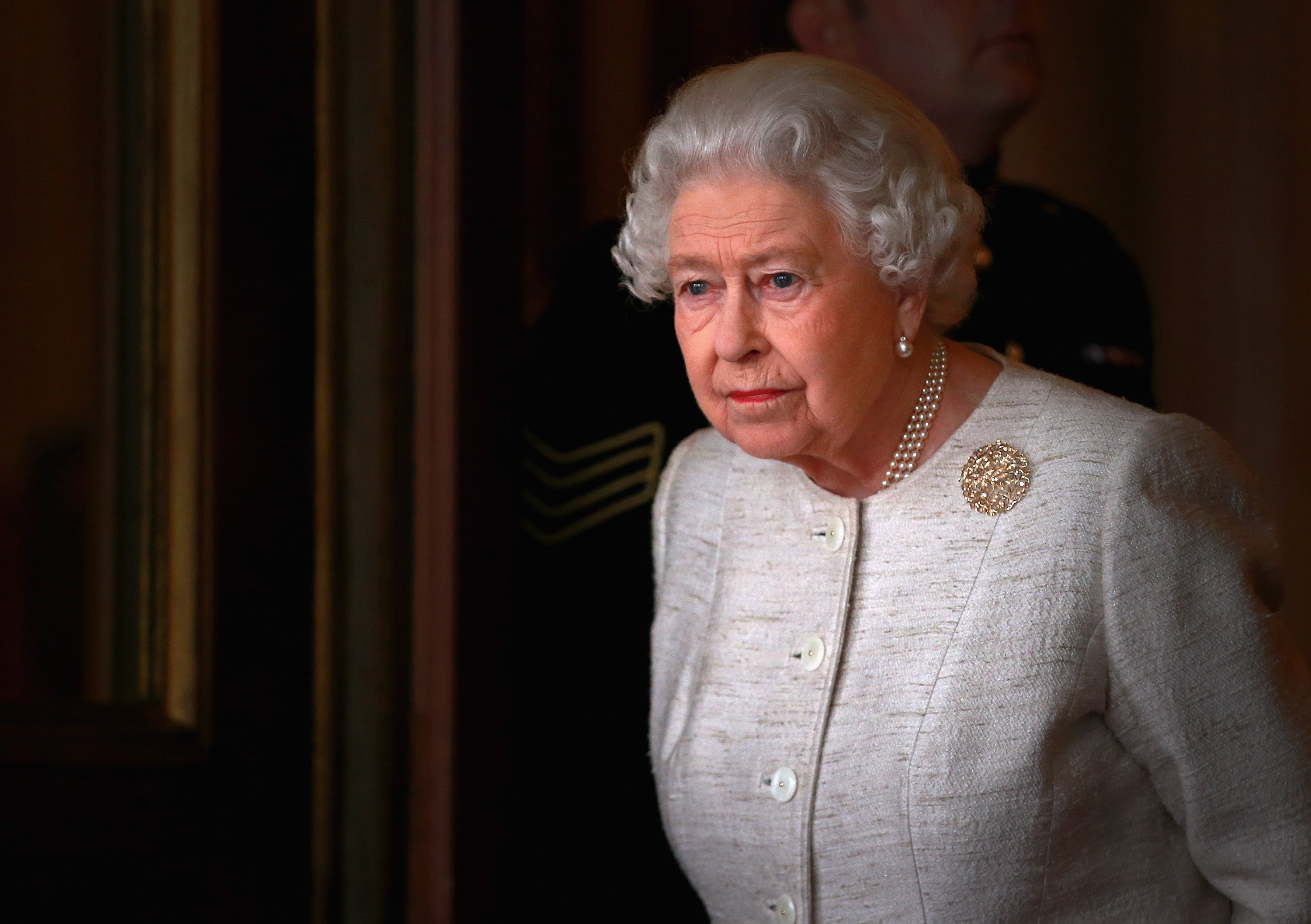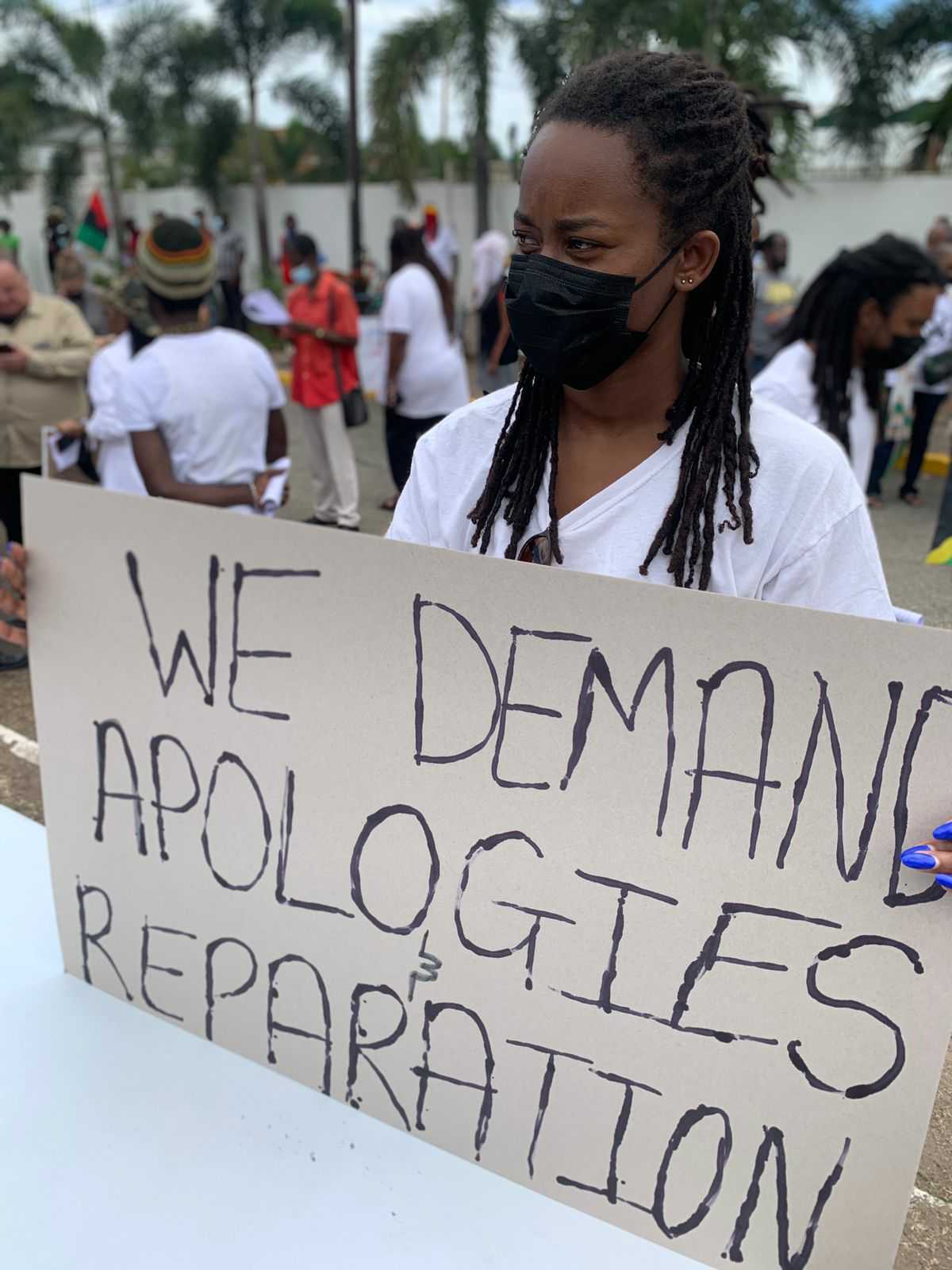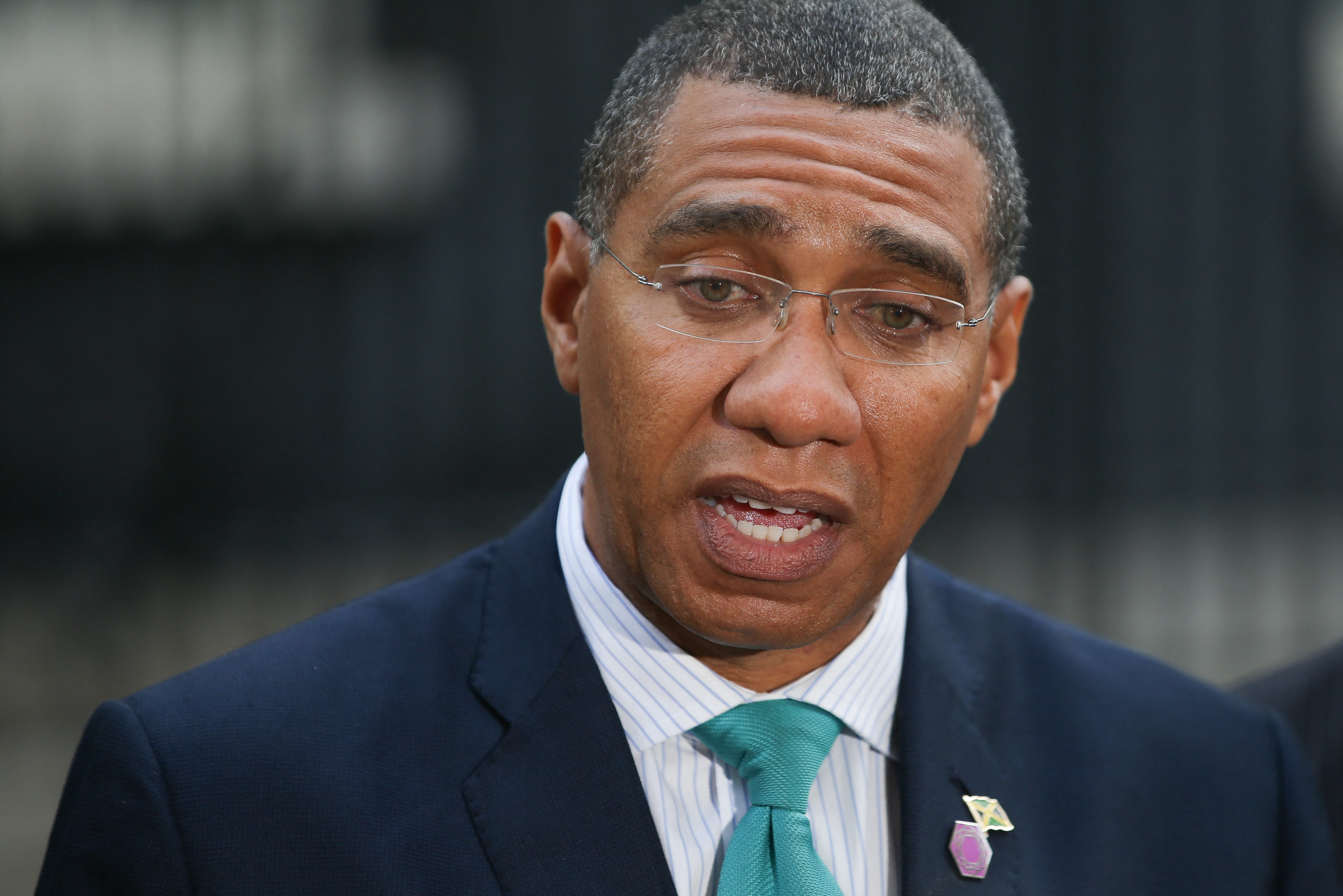Jamaica: government ‘has already begun’ process of removing Queen as head of state
Exclusive: Talks commenced weeks ago and a figure has been appointed to government who is expected to oversee the nation’s transition to republic, The Independent has been told

Your support helps us to tell the story
From reproductive rights to climate change to Big Tech, The Independent is on the ground when the story is developing. Whether it's investigating the financials of Elon Musk's pro-Trump PAC or producing our latest documentary, 'The A Word', which shines a light on the American women fighting for reproductive rights, we know how important it is to parse out the facts from the messaging.
At such a critical moment in US history, we need reporters on the ground. Your donation allows us to keep sending journalists to speak to both sides of the story.
The Independent is trusted by Americans across the entire political spectrum. And unlike many other quality news outlets, we choose not to lock Americans out of our reporting and analysis with paywalls. We believe quality journalism should be available to everyone, paid for by those who can afford it.
Your support makes all the difference.Jamaica has already started the process of removing the Queen as head of state and will continue to work on this once the royal visit is over, political sources have told The Independent.
A senior figure within government has been appointed with the primary aim of seeing the nation transition to republic status, they added.
“The government has had to start the process; the road to becoming a republic is not an easy one but they have long been coming under significant pressure to do it,” said another political source.
The matter was recently discussed at the “highest level” in government, The Independent understands.
News of the efforts to start uncoupling from the UK came after earlier “anti-colonialism” demonstrations during a visit to Belize on Prince William and Kate’s Caribbean tour.
The Duke and Duchess arrived in the Jamaican capital on Tuesday afternoon where campaigners protested outside the British High Commission against the visit, demanding reparations and apologies from the crown for slavery.
At least 350 activists gathered outside the British High Commission building holding signs with messages like “Princesses and Princes belong in fairytales… not in Jamaica” and “apologise”.

“Kate and William are beneficiaries, so they are, in fact, complicit because they are positioned to benefit specifically from our ancestors, and we’re not benefitting from our ancestors,” one attendee, Opal Adisa, said.
“The luxury and the lifestyle that they have had and that they continue to have, traipsing all over the world for free with no expense, that is a result of my great, great grandmother and grandfather, their blood and tears and sweat.”
In line with protocol and coronavirus restrictions, Advocates Network said space was requested for 60 people, but 350 people attended Tuesday’s event
As Jamaica marks its 60th anniversary, the coalition of politicians, business leaders, doctors and musicians echoed their request for an apology and reparations for slavery in an open letter to Prince William and Kate. This was handed over to some at the British High Commission on Tuesday night.
The Independent also understands that there has, however, been some resistance from within the Jamaican government to plans to remove the Queen as head of state.
Prime minister Andrew Holness was appointed to the Queen’s Privy Council - a body of advisors to the sovereign - in July, leading campaigners to question his intentions on the republic issue – despite past commitment to it during his election campaign.
The move prompted some Jamaicans to have little confidence that the transition to republic status will happen quickly.
One campaigner told The Independent: “I doubt the government will move quickly the prime minister just accepted the position on her Majesty's Privy Council”, adding that the importance of becoming a republic isn’t personal but, rather, about the significance of Jamaica “removing the shackles of its colonial past”.

Last weekend Jamaica’s culture minister, Olivia “Babsy” Grange, confirmed ahead of the royal visit that the government was pushing forward with its strategy to seek reparations for slavery from Britain.
Addressing members of the Reparations Council, a governmental advisory body, Ms Grange said the time had come to “step up the pace” on developing the nation’s ‘Roadmap to Reparation’ policy.
The council must “continue to work impatiently for justice for the atrocities committed against our ancestors, and those which flow from this history and persist against our people today (...),” she said, adding that the time for “talk” is over and “action” is required.
“We need a roadmap for legal and diplomatic actions which will bring us monetary reparation,” the minister continued. “We need that roadmap that will extinguish a debt we have never owed.”
Meanwhile, Jamaica’s opposition party said it is aware of a planned protest calling for slavery reparations and apologies - and “agrees” that the British monarchy should comply and atone for past atrocities.
Mark Golding, leader of the People’s National Party who is in favour of divorcing the monarchy and lobbying Britain for reparations, said he has been invited by the government of Jamaica to participate in various events during Prince William and Kate’s visit and he plans to make “his views on these fundamental issues known to the royals”

.“Constructive dialogue is the best way to move this process forward, and attending these events provides an opportunity for this,” he said. “The issues at hand are not about current personalities, but rather about the imperative of a principled reckoning with the past, and I intend to communicate directly our position on these issues.”
The royal couple will arrive in Jamaica in a few hours, the next stop after Belize on their eight day tour of the Caribbean, and receive an official welcome into the country.
The duke and duchess will then travel to King’s House for a meeting with the governor general of Jamaica Sir Patrick Linton Allen and later celebrate the sporting and musical heritage of Jamaica.
“You, who may one day lead the British monarchy, are direct beneficiaries of the wealth accumulated by the Royal family over centuries, including that stemming from the trafficking and enslavement of Africans,” the open letter to Prince William and Kate by the Advocates Network, behind one of the protests in Jamaica, reads.
“You therefore have the unique opportunity to redefine the relationship between the British Monarchy and the people of Jamaica.
“We are of the view that an apology for British crimes against humanity (...) is necessary to begin a process of healing, forgiveness, reconciliation and compensation.”
Join our commenting forum
Join thought-provoking conversations, follow other Independent readers and see their replies
Comments